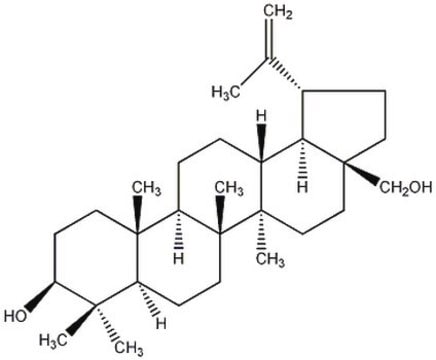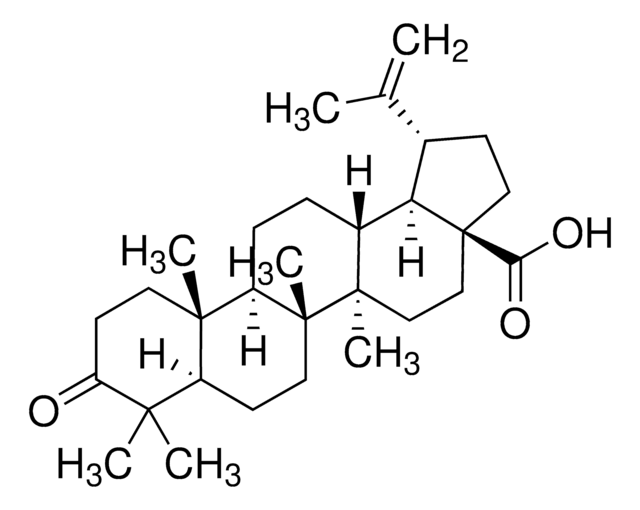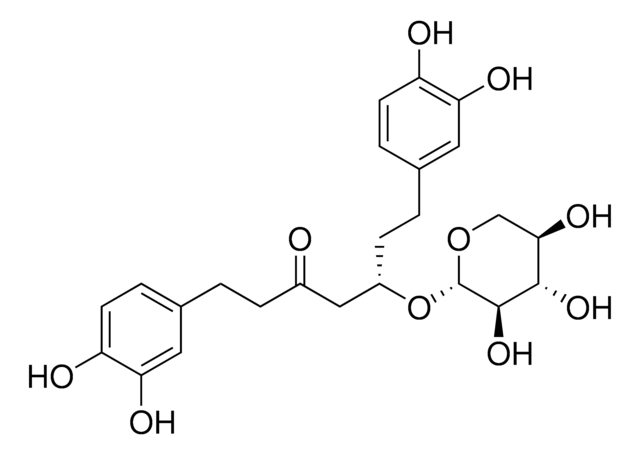B8936
Betulinic acid
≥98% (HPLC)
Synonym(s):
3β-Hydroxy-20(29)-lupaene-28-oic acid, Lupatic acid, Mairin
About This Item
Recommended Products
Assay
≥98% (HPLC)
form
powder
mp
295-298 °C (dec.) (lit.)
application(s)
metabolomics
vitamins, nutraceuticals, and natural products
storage temp.
2-8°C
SMILES string
CC(=C)[C@@H]1CC[C@@]2(CC[C@]3(C)[C@H](CC[C@@H]4[C@@]5(C)CC[C@H](O)C(C)(C)[C@@H]5CC[C@@]34C)[C@@H]12)C(O)=O
InChI
1S/C30H48O3/c1-18(2)19-10-15-30(25(32)33)17-16-28(6)20(24(19)30)8-9-22-27(5)13-12-23(31)26(3,4)21(27)11-14-29(22,28)7/h19-24,31H,1,8-17H2,2-7H3,(H,32,33)/t19-,20+,21-,22+,23-,24+,27-,28+,29+,30-/m0/s1
InChI key
QGJZLNKBHJESQX-FZFNOLFKSA-N
Looking for similar products? Visit Product Comparison Guide
General description
Application
- to test its effects as an antiviral agent against Dengue virus (DENV)
- as a sterol regulatory element-binding protein (SREBP) inhibitor to repress the lipid metabolism and proliferation of clear cell renal cell carcinoma (ccRCC) cells
- as a treatment to test its anti-tumor properties for cell viability and apoptotic cell death assays in multiple myeloma models
Biochem/physiol Actions
Storage Class Code
11 - Combustible Solids
WGK
WGK 3
Flash Point(F)
Not applicable
Flash Point(C)
Not applicable
Certificates of Analysis (COA)
Search for Certificates of Analysis (COA) by entering the products Lot/Batch Number. Lot and Batch Numbers can be found on a product’s label following the words ‘Lot’ or ‘Batch’.
Already Own This Product?
Find documentation for the products that you have recently purchased in the Document Library.
Customers Also Viewed
Our team of scientists has experience in all areas of research including Life Science, Material Science, Chemical Synthesis, Chromatography, Analytical and many others.
Contact Technical Service











